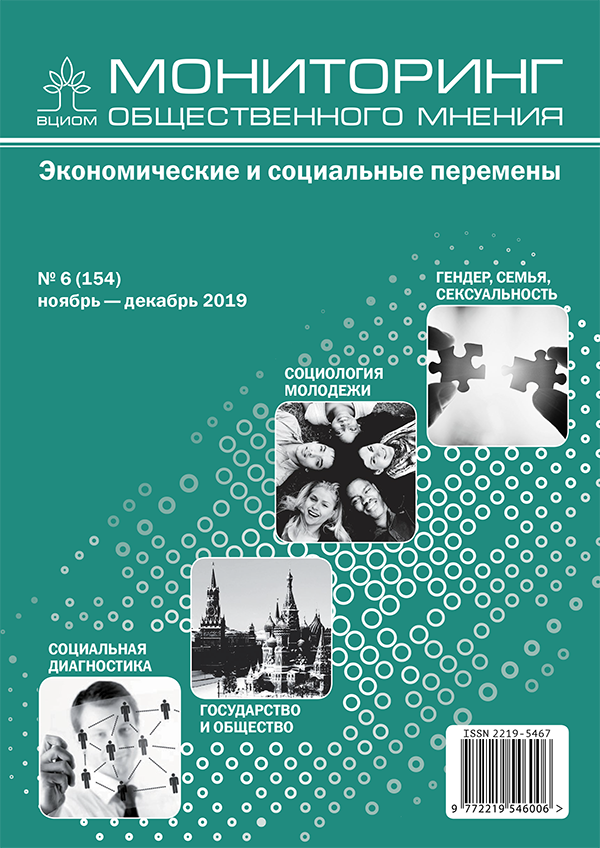Public councils under executive bodies: experts, controllers or community advocates?
DOI:
https://doi.org/10.14515/monitoring.2019.6.09Keywords:
advisory committees, normative model, expertise, public councils, public control, civic participationAbstract
The article discusses how members of public councils under executive bodies construct their own identity. The authors describe and analyze the global normative model of advisory committees as structures that provide public authorities with external expertise. The article shows how this neoliberal model was merged with the Soviet model of the supervision over the authorities’ activity as a form of civic participation, when being adopted at the national level. This, in turn, formed a model of public councils as subjects of public control.
Based on empirical evidence, the authors conclude that the members of public councils view themselves not as experts (in accordance with the global normative model) or not as subjects of public control but rather as mediators between the government and the people, with a function of bringing citizens’ complaints to the notice of authorities. Thus, they reproduce the traditional model of the relationship between state power and society.
Acknowledgments. The authors express gratitude to Presidential Grants Foundation for the support of the project “Public councils under executive bodies: formation and effectiveness (Sverdlovsk region case study)” (contract no. 17-2-008921). The article is based on the findings of this project. The authors would also like to say thanks to O.V. Rybakova and O.A. Koneva (Socium Foundation, Yekaterinburg) for their assistance in the organization of interviews.






